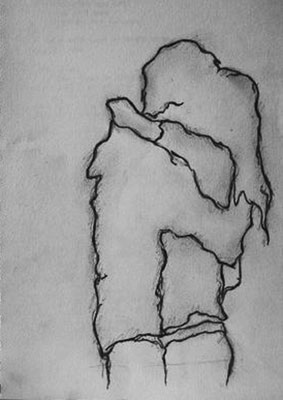All Nonfiction
- Bullying
- Books
- Academic
- Author Interviews
- Celebrity interviews
- College Articles
- College Essays
- Educator of the Year
- Heroes
- Interviews
- Memoir
- Personal Experience
- Sports
- Travel & Culture
All Opinions
- Bullying
- Current Events / Politics
- Discrimination
- Drugs / Alcohol / Smoking
- Entertainment / Celebrities
- Environment
- Love / Relationships
- Movies / Music / TV
- Pop Culture / Trends
- School / College
- Social Issues / Civics
- Spirituality / Religion
- Sports / Hobbies
All Hot Topics
- Bullying
- Community Service
- Environment
- Health
- Letters to the Editor
- Pride & Prejudice
- What Matters
- Back
Summer Guide
- Program Links
- Program Reviews
- Back
College Guide
- College Links
- College Reviews
- College Essays
- College Articles
- Back
Discrimination Nation
In a country that supposedly stresses fairness and equality, discrimination appears to run rampant. Although many of us would like to believe discrimination is no longer an issue in the U.S., statistics show that countless groups of people still face discrimination in the workplace, school, and many other locations.
Discrimination has been an issue for thousands of years. Most recently, it has been a prominent issue for minorities in race, sexual orientation, and religion. The fight for gay marriage and the shooting of Afro-American teenager Michael Brown are two prime examples. However, discrimination does not only affect minorities in race, sexual orientation, and religion. People become biased against each other due to clothing choices, social class, weight, and more. Discrimination is not a problem for just a few select minorities; it is a problem for everyone.
As a Colorado teen, I am exposed to a vast number shocking discriminatory opinions. Racial slurs and homophobic comments are not unfamiliar to me.
“Don’t associate with homosexuals or bisexuals,” my religious relative preached. “They’re sinners, and you don’t want to become like them.”
“Black kids are always stealing things,” my friend claimed.
What was even more surprising than the statements themselves was the limited knowledge of the speakers. My religious relative had no homosexual or bisexual friends. My friend lived in a community with an extraordinarily small African-American population. So how did they gain knowledge about the people that they were so prejudiced against?
The answer is simple: they didn’t. Their biases and opinions are often based off of brief impressions, false information, and bad misconceptions. Because of this, they are unable to empathize with the groups they discriminate against, which only makes it easier to criticize them. If these individuals were able to step into others’ shoes, it is far less likely that they would be so discriminatory.
This is a concept that most of us struggle with. Though we may not realize it, most of us discriminate against at least one group of people. The world is a harsh place, and we have learned to judge people by appearance far too often. Just like the aforementioned individuals, we too need to empathize better with different groups of people.
The need for empathy is further demonstrated in everyday life. Incidents of discrimination are documented on social media everyday. If you log onto tumblr, there is a good chance you will encounter at least one post about discrimination against the LGBT community. In the past few days, I have encountered at least ten posts about problems LGBT individuals have encountered because of their sexuality. One recurring subject in the post was particularly disturbing to me: transgender women are being harassed when they go to the bathroom.
The evidence for this harassment is not difficult to find.One online video documents the story of a transgender woman who was banned from a grocery store bathroom (Transgender Trespassing). Other transgender women are so afraid of being harassed in the bathroom, they won’t even go, which causes them to get urinary tract infections (Davis).
African Americans also still face discrimination. In a recent study, researchers found that individuals with traditionally white sounding names get more callbacks than those with traditionally Afro-American sounding names (Racist?).
However, statistics show that certain experiences can sway people’s opinions. Homophobic individuals often become more accepting of the LGBT community after they learn that a friend or relative is not heterosexual (Whites).
I also know several friends and families that have become more open to certain groups of people after befriending me. One Indian family I knew was racist against Filipinos, but became more open to the race after their daughter befriended me. Another family discriminated heavily against Christians, but changed their views after they learned that my family (whom they were close with) is Christian.
My personal experience along with statistics proves that discrimination is not an impossible obstacle to overcome. The answer is empathy. When we give people a chance and get to know them, we learn a very important fact: we are all human. We may have many differences, but we also have many similarities. All we need to do is take a moment to step into each other’s shoes.
Works Cited
Davis, Masen. "Transgender People Need Safe Restrooms." The Huffington Post.
Kristof, Nicholas. "Is Everyone a Little Bit Racist?" The New York Times. The New York Times, 27
Aug. 2014. Web. 02 Sept. 2014.
Kristof, Nicholas. "When Whites Just Don’t Get It." The New York Times. The New York Times, 30
Aug. 2014. Web. Aug.-Sept. 2014.
"Transgender Trespassing." Live.huffingtonpost.com. N.p., 17 Apr. 2013. Web. 4 Sept. 2014.
TheHuffingtonPost.com, 24 June 2013. Web. 04 Sept. 2014.

Similar Articles
JOIN THE DISCUSSION
This article has 0 comments.

This was done as an op-ed for an AP Lang assignment. I hope this message will travel.